- Details
AFAM CEO Xavier Wartelle (Li 82) while in Paris, met students and alumni at la SOCE. The event took place on June 15th. Cyril Poinsot (Cl 93) and Valérie Prulhière (Li 87), VP International, organized this conference. Xavier Wartelle talked about AFAM, its programs and his own American journey as well as about his current job as co-founder and CEO of Avatar Medical.
Participants were interested in different ways of coming and working in the USA and asked some questions about it. Besides, the audience asked the speaker about his entrepreneurship experience and whether it is a good way to start working for a big company before exploring entrepreneurship options.
AFAM would like to continue this tradition of having different meetings throughout the year between AFAM representatives and Arts et Metiers students/alumni on different campuses.
Next event with an Arts et Metiers alumnus, AFAM board member, Sequoia committee member and Atlanta gadz'arts representative Valentin Fehr (Cl 212) will take place on Cluny campus, on September 4th.
If you are on Cluny campus at the beginning of September, please stop by to say hello to Valentin and to learn more about our new Sequoia program.
- Details
French Alumni SoCal pre-summer networking event took place on June 5th in Los Angeles. The event was organized by French Alumni SoCal group.
Julie Duhaut-Bedos, Consul General of France in Los Angeles welcomed guests in the Résidence de France (813 North Camden Drive Beverly Hills, CA 90210).
The event was dedicated to Innovation. Among the guests there were representatives and alumni of X, Mines, Telecom, HEC, Essec, Escp, EDHEC, EM Lyon, Sciences Po, Sorbonne.
There were also a few Arts et Metiers alumni present at the event.
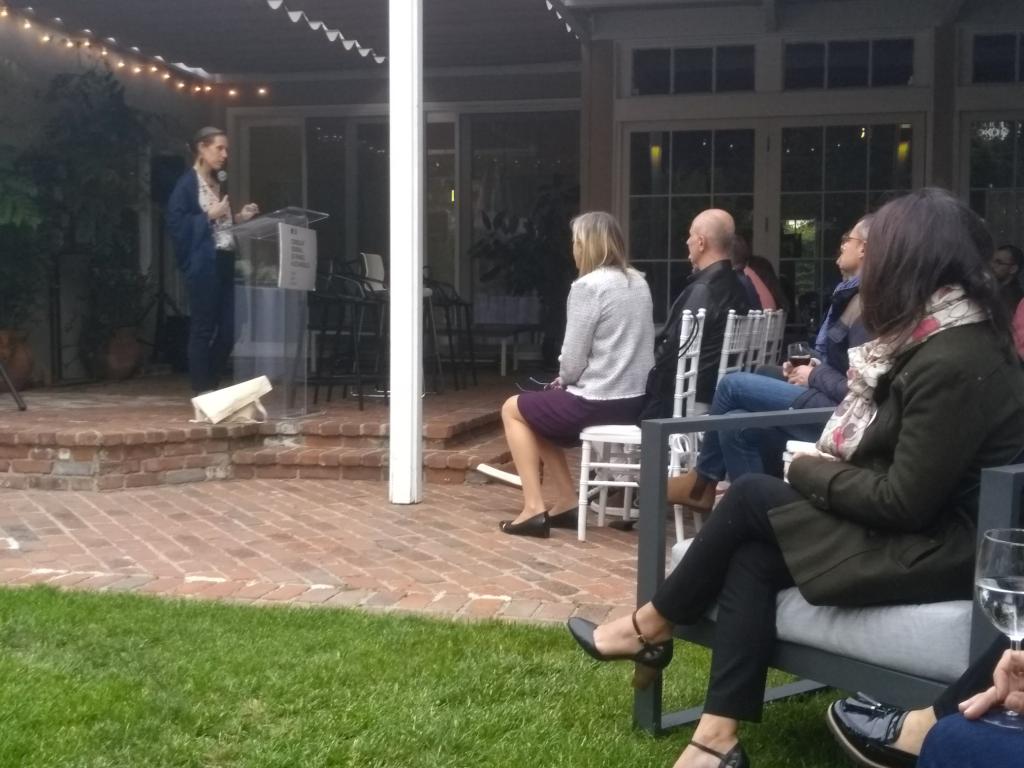
Julie Duhaut-Bedos, Consul General of France in Los Angeles
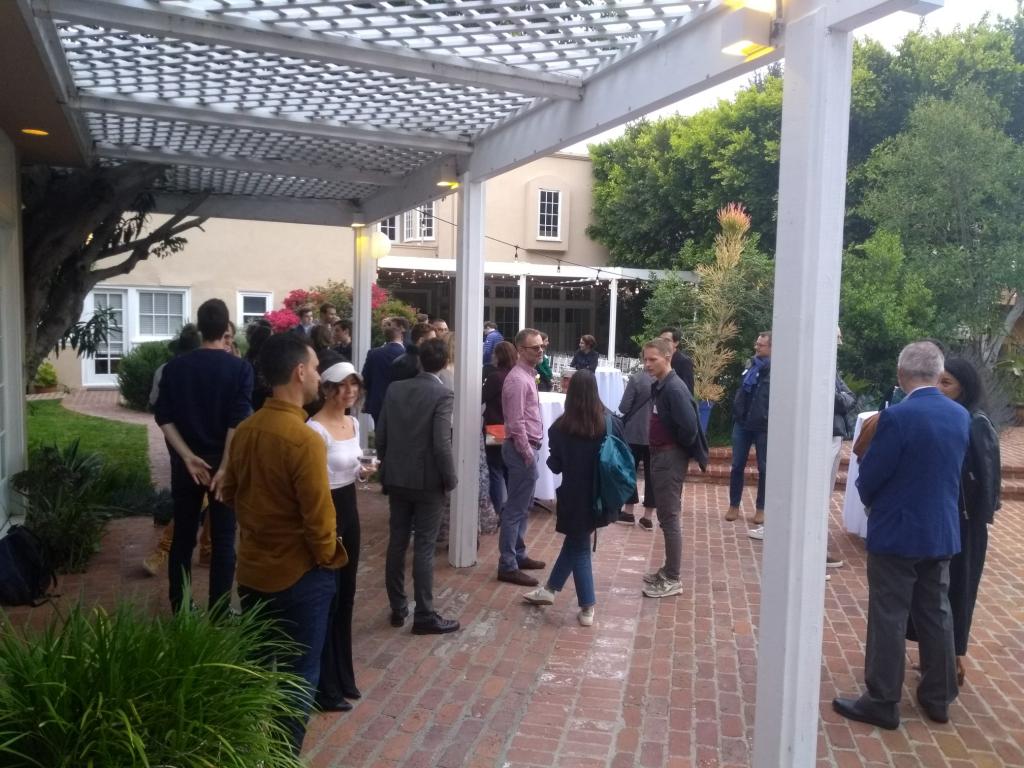
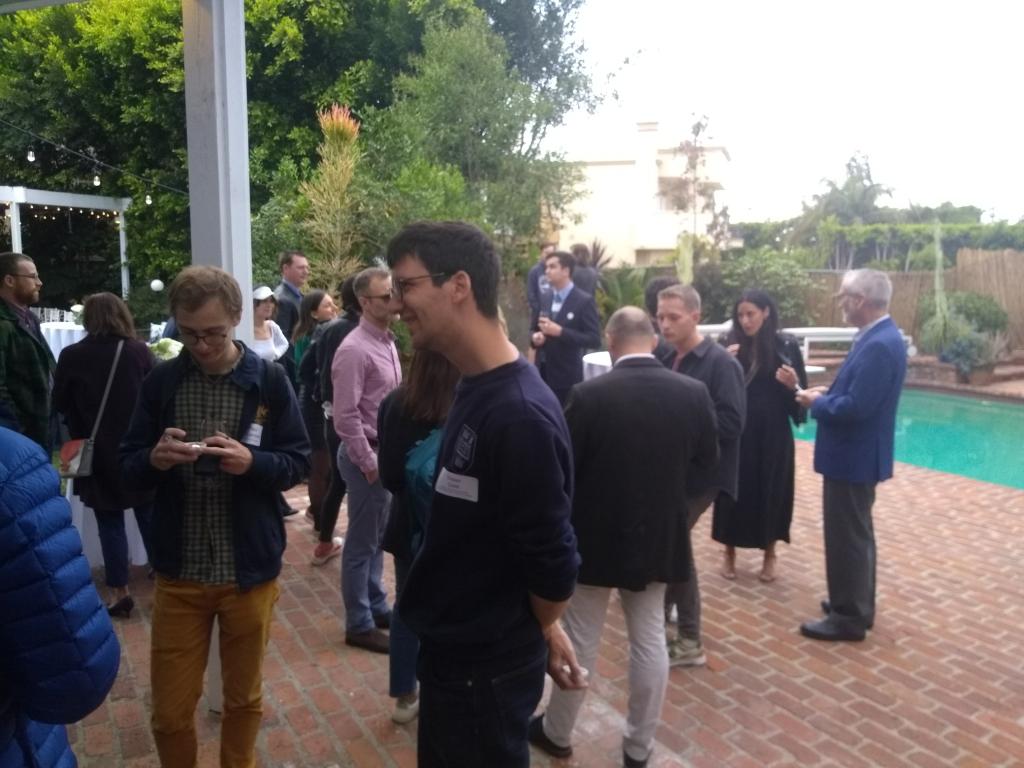
French alumni at the event
- Details
AFAM:
Hello, Louis, and thank you for agreeing to answer my questions. You graduated from both Arts et Métiers and UC Berkeley (Electrical Engineering and Computer Science). Since 2019 you have been working in the healthcare industry as Machine Learning Engineer: first at VideaHealth, an AI platform for dentists and today at Butterfly Network, an ultrasound company. Please tell us a few words about your mission with these companies and whether working in the healthcare industry was a coincidence or your choice.
Louis:
Hello! Thank you for having me. Working in the healthcare industry was definitely a deliberate choice for me. I've always been interested in the intersection of technology and healthcare, and I wanted to work at the crossroad of AI research and AI products.
During my time at VideaHealth, my mission was to develop and deploy machine learning algorithms to automate the analysis of dental X-rays and assist dentists in their diagnosis. The goal was to improve the accuracy and efficiency of dental diagnoses, ultimately leading to better patient care. The main project I worked on was developing an algorithm to detect cavities on X-rays and get that cleared by the FDA. Being able to work on solving such a problem once and then being able to deploy it to thousands of dentists to help the diagnosis of millions of patients is truly what is amazing about working in ML.
Butterfly Network has developed a handheld ultrasound device called the Butterfly iQ. My mission here is to develop algorithms to run on top of the imaging capabilities of the Butterfly iQ. For instance, displaying in real-time the quality of the ultrasound image or labeling anatomical features.
AFAM:
How do you think working in the healthcare industry is different from working in other companies?
Louis:
The main difference is that the algorithms I develop can bring a lot of benefits to patients as long as they are carefully built. That is why the FDA makes sure all of those algorithms are fair. This has direct implications on the code I write since there are important requirements in place that are meant to safeguard against mistakes.
Another key aspect is the cross-functionality of the work. As a Machine Learning Engineer, I work with people in the Software, Product, Clinical, and Regulatory teams. As such, being able to understand and work with them is key. In this regard, I believe the French Grandes Ecoles system and Arts & Métiers definitely helped in building a broad set of skills.
AFAM:
Boston in the US is considered to be one of the centers of biomedical engineering, research, and innovation. Do you take advantage of being in Boston to advance your career in the biomedical sector?
Louis:
Absolutely, a great example of that would be the MIT Healthcare hackathon that is happening every year and that I got the chance to win last year. Boston also has so many hospitals that it makes it very simple to be in touch with the latest research.
AFAM:
Any biomedical startups/companies in the US or in France you are following or/and have been impressed by recently? Why?
Louis:
There are quite a few! On top of my mind, I would mention Digital Diagnostics, a company that works in the ophthalmology space, which is one of the rare companies that got an FDA clearance for an AI algorithm that can be used completely autonomously, which allows it to diagnose patients in areas where ophthalmologists are not available.
There is also Medivis, a company working on imaging for surgeries, and we should see significant breakthroughs from them soon!
In France, Cardiologs is doing an amazing job in the ECG space and while being a French company already has an FDA clearance!
AFAM: in our Shasta program, we often help students interested in the healthcare industry and also those interested in Machine Learning. What would you advise these students who are willing to find an internship in the US?
Louis:
In terms of key skills to master in order to get hired in such positions I would mention coding and data skills. It’s necessary to be great at ML algorithms but without solid skills in Python and leveraging the pandas library it is very difficult to work efficiently.
AFAM:
Any future plans concerning your professional career you’d like to share with us?
Louis:
The coming years will definitely be quite challenging based on projects I cannot disclose yet but I am hoping I’ll deliver amazing news in a year!
AFAM:
Thank you for your time, Louis, and have a wonderful day!
Other interviews in our "Medi, Vidi, Vici" interview series:
Interview with Alexandre Becache (Bo 219)
- Details
On May 23rd a conference "How to stay in the US after your J1 visa?" took place. It was organized by French Morning.
Rodrigue Colaianni, J1 and F1 visas expert explained to students what options might be available to them to stay in the United States for 2 to 4 more years. Rodrique talked about Curricular practical training (CPT), optional practical training (OPT) and different types of visa students can apply for after their J1 internship.
Good news for French citizens about the duration of E visa is that Premium Processing will be available soon from June for change of status from J1 to F1 within only 30 days (read about it more here).
Rodrigue Colaianni also presented a new MBA program which will allow to continue studying in the US.
Studying in the United States might be an interesting and useful option for many our Arts et Metiers students and alumni. That is why AFAM is launching a new Sequoia program to help our alumni to study in the United States.
To know more about our news Sequoia program, please visit our web-site and
AFAM accepts applications to join our new Sequoia program before June 30.
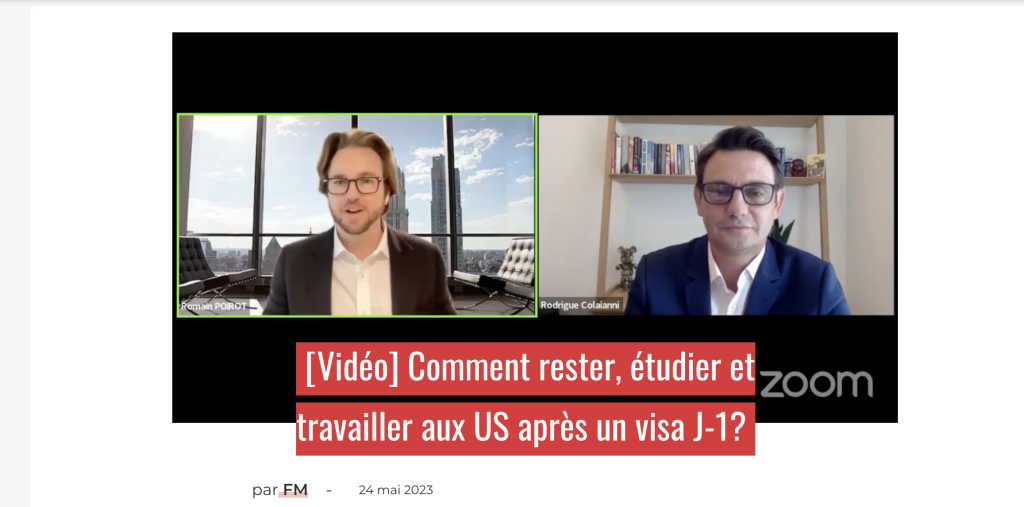
- Details
First Sequoia online conference for students willing to study in the US took place on May 9th.
Students of second and third year were invited to join the conference.
Members of Sequoia committee - Valentin Fehr (Cl 212), Nicolas Horde (Ai 214) and community manager Albina Patou-Chebykina shared with the students information about the new Sequoia program and Sequoia grants.
Arts et Metiers students and alumni willing to study in American Universities are invited
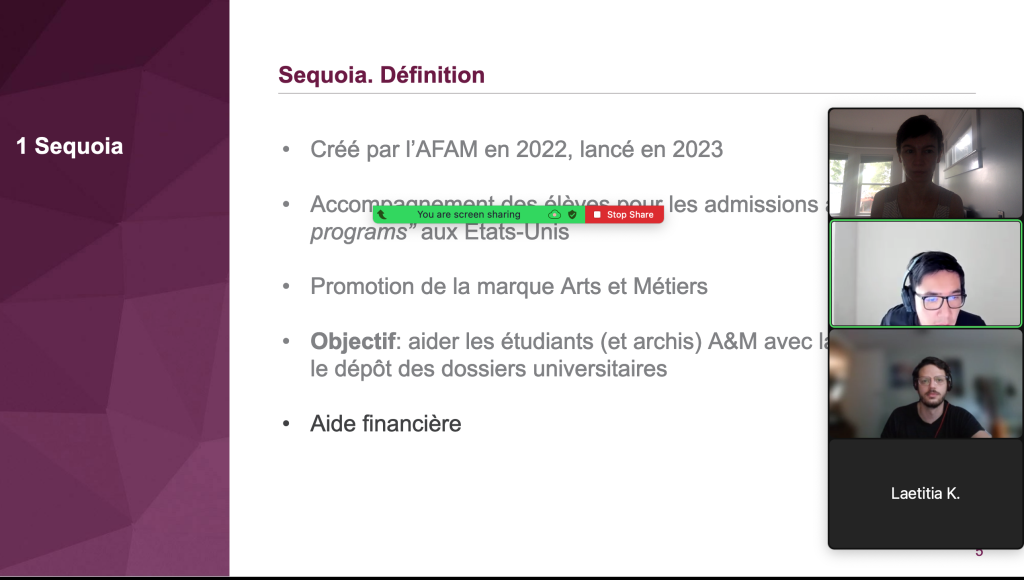
- Giving back to your community: Interview with VP International, Valerie Prulhière (Li 187)
- Gadz'SF Spring 23' event at Spark Social SF took place in April
- Gadz energy networking event took place in March
- Double National title for one of our Board members - Jean Pommier (An 183)
- Marc Amblard (Cl 84), AFAM CFO, received SOCE bronze medal

 BLOG /
BLOG /  CALENDAR /
CALENDAR /  DONATIONS /
DONATIONS /  MENTORS /
MENTORS /